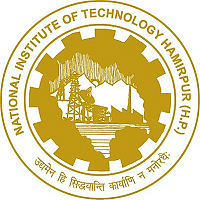Introduction about Ph. D in Neurological Science
A Ph.D. in Neurological Science from best college is a specialized academic program designed for
individuals interested in delving deep into the complexities of the nervous
system. This field encompasses a wide array of disciplines, including
neuroscience, neurobiology, neurochemistry, neurophysiology, and neuroimaging,
among others.
During a Ph.D.
program in Neurological Science, students typically engage in advanced
coursework to build a strong foundation in the fundamental principles of
neuroscience. They delve into topics such as neural development, synaptic
plasticity, neurodegenerative diseases, neural circuits, and computational
neuroscience.
One of the hallmark
features of a Ph.D. in Neurological Science is original research. Doctoral
candidates work closely with faculty mentors to design and execute experiments
aimed at advancing our understanding of the nervous system. This often involves
using cutting-edge techniques such as electrophysiology, imaging, optogenetics,
and molecular biology.
The ultimate goal
of a Ph.D. in Neurological Science is to produce independent researchers
capable of making significant contributions to the field. Graduates of these
programs may pursue careers in academia, industry, healthcare, or government,
where they continue to explore the mysteries of the brain and develop new
therapies for neurological disorders.
What is admission process for Ph. D in Neurological
Science ?
The admission process for Ph.D. in Neurological Science
typically involves several steps, and the specific requirements may vary
depending on the institution. However, here's a general overview of what the
process might entail:
Researching
Programs: Prospective
students should first research Ph.D. programs in Neurological Science to
identify institutions that offer programs aligned with their research interests
and career goals.
Meeting
Prerequisites: Most Ph.D.
programs have prerequisites that applicants must meet. These typically include
a bachelor's or master's degree in a relevant field such as neuroscience,
biology, psychology, biochemistry, or a related discipline. Some programs may
also require specific coursework or a minimum GPA.
Preparing
Application Materials:
Applicants typically need to submit several materials as part of their
application package. These commonly include:
Transcripts from
all previous undergraduate and graduate institutions attended.
Letters of
recommendation from professors or professionals who can speak to the
applicant's academic abilities, research experience, and potential for success
in a Ph.D. program.
A statement of
purpose or personal statement outlining the applicant's research interests,
career goals, and reasons for pursuing a Ph.D. in Neurological Science.
A curriculum vitae
(CV) or resume detailing the applicant's academic achievements, research
experience, publications, presentations, and relevant skills.
Standardized test
scores, such as the GRE (Graduate Record Examination) or subject-specific GRE
tests (if required by the program). Some programs may waive this requirement or
make it optional.
GRE Scores and
Other Tests: Some programs
may require or recommend GRE scores, while others may not. Be sure to check the
specific requirements of each program to which you are applying. Additionally,
if English is not your native language, you may need to demonstrate proficiency
in English by taking tests such as the TOEFL (Test of English as a Foreign
Language) or IELTS (International English Language Testing System).
Application
Submission: Once all
application materials are prepared, applicants must submit their applications
through the online portals or application systems specified by the respective institutions.
Deadlines for applications vary but are typically several months before the
start of the academic year.
Interviews: Some programs may require interviews as
part of the admissions process. These interviews may be conducted in person,
over the phone, or via video conference. During the interview, applicants may
have the opportunity to discuss their research interests, academic background,
and fit for the program with faculty members or admissions committees.
Admission Decisions: After reviewing all applications, the
admissions committee makes decisions regarding acceptance into the Ph.D.
program. Applicants will typically receive notification of their admission
status within a few months of the application deadline.
It's important for prospective
students to carefully review the specific admissions requirements and deadlines
for each program they are interested in and to reach out to program
coordinators or admissions offices if they have any questions or need
clarification.
What is eligibility for Ph. D in Neurological
Science?
The eligibility requirements for Ph.D. in Neurological Science can vary depending on the institution and the specific
program. However, here are some common eligibility criteria that applicants may
need to meet:
Educational
Background: Typically,
applicants should hold a bachelor's or master's degree in a relevant field such
as neuroscience, biology, biochemistry, psychology, pharmacology, or a related
discipline. Some programs may accept students with degrees in other fields if
they have relevant coursework or research experience.
Academic
Performance: Applicants are
generally expected to have a strong academic record, including a high
undergraduate GPA. While specific GPA requirements vary, competitive applicants
often have GPAs of 3.0 or higher on a 4.0 scale.
Research Experience: Many Ph.D. programs in Neurological
Science prefer applicants who have prior research experience. This could
include conducting research as part of undergraduate or master's studies,
participating in internships or research assistantships, or working in a
laboratory setting.
Letters of
Recommendation: Applicants
are typically required to submit letters of recommendation from professors or
professionals who can speak to their academic abilities, research experience,
and potential for success in a Ph.D. program. The number of letters required
may vary by institution, but it's common to need three letters.
Statement of
Purpose: Most programs
require applicants to submit a statement of purpose or personal statement. This
document allows applicants to articulate their research interests, career
goals, and reasons for pursuing a Ph.D. in Neurological Science. It's an
opportunity for applicants to demonstrate their passion for the field and their
alignment with the program's objectives.
Standardized Test
Scores: Some programs may
require or recommend standardized test scores, such as the GRE (Graduate Record
Examination) or subject-specific GRE tests. However, this requirement is
becoming less common in many graduate programs, and some institutions have
opted to waive the GRE requirement altogether. Be sure to check the specific
requirements of each program to which you are applying.
English Proficiency: For international applicants whose native
language is not English, proficiency in English may be demonstrated through
standardized tests such as the TOEFL (Test of English as a Foreign Language) or
IELTS (International English Language Testing System).
It's important for
prospective applicants to carefully review the eligibility requirements of each
Ph.D. program they are interested in and to reach out to program coordinators
or admissions offices if they have any questions about their qualifications or
eligibility.
What is syllabus of Ph. D in Neurological Science ?
The syllabus for Ph.D. in Neurological Science can
vary significantly depending on the specific program, the focus of the
research, and the interests of the student and their advisor. However, here's a
general overview of topics that may be covered during a Ph.D. program in
Neurological Science:
·
Core
Courses: These courses
provide a solid foundation in neuroscience and may cover topics such as:
·
Neuroanatomy:
Study of the structure of the nervous system, including the brain, spinal cord,
and peripheral nerves.
·
Neurophysiology:
Examination of the function of the nervous system, including neural signaling,
synaptic transmission, and neuronal circuits.
·
Neurochemistry:
Exploration of the chemical basis of neuronal communication and
neurotransmitter systems.
·
Neurodevelopment:
Understanding how the nervous system develops from embryonic stages through
adulthood.
·
Neuropharmacology:
Study of the effects of drugs on the nervous system and their potential
therapeutic applications.
·
Advanced
Topics: These courses delve
deeper into specialized areas of neuroscience and may include:
·
Cognitive
Neuroscience: Investigation of the neural basis of cognitive functions such as
perception, attention, memory, language, and decision-making.
·
Systems
Neuroscience: Examination of the organization and function of neural circuits
involved in specific behaviors or physiological processes.
·
Cellular
and Molecular Neuroscience: Focus on the molecular mechanisms underlying
neuronal function, including gene expression, protein synthesis, and
intracellular signaling pathways.
·
Computational
Neuroscience: Application of mathematical and computational techniques to model
neural processes and understand brain function.
·
Research
Seminars: These seminars
provide opportunities for students to present their research findings, discuss
recent advances in the field, and engage with faculty and fellow students.
·
Elective
Courses: Students may have
the opportunity to take elective courses tailored to their specific research
interests or career goals. These courses could cover topics such as
neuroimaging techniques, neurobiology of disease, neuroethics, or advanced
statistical analysis methods.
·
Independent
Research: A significant
portion of a Ph.D. program in Neurological Science is devoted to conducting
original research under the supervision of a faculty advisor. This research may
culminate in a doctoral dissertation, which is typically a substantial written
document presenting the student's research findings and conclusions.
·
Professional
Development: Some programs
offer courses or workshops focused on professional skills development, such as
scientific writing, grant writing, presentation skills, and responsible conduct
of research.
·
It's
important to note that the specific courses and requirements can vary between
institutions and may be customized based on the interests and goals of
individual students. Additionally, Ph.D. programs often provide flexibility for
students to tailor their coursework and research experiences to their unique
interests and career aspirations.












